Two leading UK writers met in London on Valentine’s Day to share their experiences of writing for a greenlight, maintaining influence on shoots and whether screenwriting is an art or a craft. Louise Tutt took notes
What is your role on a project?
Tony Grisoni: Everything from, ‘Do a rewrite and deliver it and get paid and go home’, to ‘Be here, be involved’. For me, the ideal situation is a producer, director, writer triumvirate, where no-one is disposable and no-one is going to be replaced, where I can be involved all the way through film-making. I like the debate. I like the conversation. I don’t get very excited by sitting at home wearing a cravat and using a quill.
How easy is that to achieve?
TG: You try to choose the people you work with, balancing that with the fact you’ve got to earn a living.
Rowan Joffe: I agree. The experience is down to who you are working with. Having written The American last year, I started off with quite a close relationship with [director] Anton Corbijn in the sense we recced the locations in Italy together for the screenplay. I then wrote a draft which got [George] Clooney attached and from then on I was just getting bog-standard notes by e-mail from the producers and Anton and that was the end of my involvement. I never went on set, never met Mr Clooney. I wouldn’t say it was a bad experience but if I was making my career solely off that kind of interaction with the industry, I would be a pretty lonely, crotchety, bad-tempered writer.
Is that why you decided to direct?
RJ: Hand on heart, if I had felt absolutely artistically satisfied with the process of screenwriting there would have been less impetus to direct. But I’m not sure you can be utterly satisfied.
TG: One of the things that made me look at directing was working with Michael Winterbottom on In This World. It was one of the best film-making experiences I’ve ever had. I probably spent less time sitting down at a laptop on that than I ever have for anything. We were travelling. I was about a day ahead of the crew and instead of writing ‘a man in a café’ I would go and find a man in a café. That broadened the nature of what writing was on a film.
RJ: Doing Brighton Rock, I was writing and rewriting during the shoot. I know what is required and I don’t have to articulate it to another writer, and pander to, quite understandably, another creative human being’s ego and then sit back and wait.
TG: Is that specifically to do with an adaptation?
RJ: I think it’s across the board. When I directed The Shooting Of Thomas Hurndall, a one-off [original] drama for Channel 4, I did find it both immensely rewarding and very frustrating to sit with the writer Simon Block, who I like very much and who I admired very much for that screenplay. But I did find it a little bit frustrating to have to sit with him and say, “Couldn’t character X say something a bit like… Obviously I don’t mean this word for word.” But the truth is I did mean it word for word. I just wanted to get that thing and rewrite it!
TG: I’ve certainly had troubled relationships with directors. But I’ve had more good ones than bad ones. You do owe it to the piece if you feel really strongly about something to really make the point. [Director] James Marsh and I had a major disagreement about the ending of 1980 Red Riding. We are mates but I wanted to kill him! We both fought our corner and what happened in the end was an interesting mixture.
RJ: One obvious advantage of not being a writer-director is sometimes the film will benefit from more than one interpretive drive. [But] I’ve worked with directors who are, I think, very uncomfortable with sharing the creative limelight. They want your talent but they don’t want to recognise it. That isn’t good for the movie.
Do you have to rein in your own creativity when working on an adaptation?
TG: No. I’m adapting a book for a reason, I love the book, I love something in the book. Before I start inventing something, I’m going to look for it in that book. That’s the job. And that is a creative job.
RJ: You can like one or more elements in a novel that you otherwise don’t like. And if there is no cultural pressure on you to honour that novel, then you will rip it up and take the thing you like and rebuild from there.
Was that your experience on Brighton Rock?
RJ: No! No cultural pressure? There could not have been more cultural pressure! Every creative decision you make [on an adaptation like Brighton Rock] will be scrutinised and judged.
What are the politics of co-writing and rewriting? Rowan, there are three further credited writers on 28 Weeks Later.
RJ: It’s a shitty process. You write a script. It gets the director on board. The director happens to be the kind of director who expects to get a credit even if he moves a comma around. And then as it turns out, it’s the producer who does all the writing, and you’ve got two credits and you’ve now been out the loop for a year. It’s a bad process in the sense you have to share the kudos and your fees and bonus and it’s a good process in that everyone on the poster contributed to the film and I think it’s a really cool film.
Are you often asked to rewrite someone else’s work?
TG: I did do it but I don’t do it any more. It’s easy money. My experience is that people say, “It just needs a tweak.” It always needs [a] page one [rewrite]. Or they say the writer’s really written out. They’ve driven him insane and he’s on the verge of suicide.
RJ: The American was a page one rewrite of a project where there were four other writers previously. And I had no compunction about taking that job as I thought the previous drafts were not very good. What I’m doing now [Agent Zigzag] is a page one rewrite but again it’s based on a book. I’ve been knocked off [on other projects] as a middle writer and I took it on the chin. If that sort of stuff upsets you, don’t be a screenwriter.
What compels you to write screenplays?
TG: You’re like a kid pretending. That’s such a simple thing to say but such a complex and beautiful thing to be doing. When the writing really takes off, it’s almost trance-like. Also, you’re imagining a film. You are imagining cuts and music cues and cameramen. It doesn’t mean all of that is going to be carried out — it would be boring if nothing changed or developed. But when you’re imagining it, you’re imagining sitting in the cinema and watching it. At its best. Which wasn’t today. Today was shit.
RJ: I’d say writing for actors is where the buzz is. When you put a page of dialogue together. In some ways it’s the most restrictive form of writing there is because you can only describe the surface of things. It’s absolutely useless to put a character’s thought process in or to explain in a stage direction the meaning behind an action. But those limitations make it a very precision-engineered art form. I think of it more as a craft than an art. It either works or it doesn’t. That kind of black and whiteness also allows writers to succeed or fail in a tangible way. If you’re good at it, you tend to get employed again.
Which screenplays have you admired recently?
TG: I don’t come away from any film thinking, that was a fine screenplay, or that was a fine piece of camerawork, or that was a fine piece of direction. It’s a whole world you come to. If your notion of a screenplay is that it’s just dialogue, and we all know it’s not, then you might come away from a very talky film and say, ‘I really enjoyed all that chat.’ But that’s not the screenplay.
RJ: When I wrote the script [of The American], I wanted to write a film about a bloke who says fuck all. Because I knew that was his character, he was enigmatic and lonely. Now, of course, when the movie gets made there are great big chunks of silence. Where’s that coming from? Is that me? Is it Anton? In truth, it’s both.
The writers
Tony Grisoni
Many feature credits include Fear And Loathing In Las Vegas, In This World, Brothers Of The Head and The Lives Of The Saints, as well as TV projects such as the adaptation of David Peace’s Red Riding books, and the original screenplay of Samantha Morton’s Bafta TV winning The Unloved in 2010. His short film, which he also directed, Kingsland #1: The Dreamer was also Bafta-nominated. Grisoni is now writing a TV serial for Channel 4 and Warp Films based on real stories of loss and beliefs about the supernatural.
Rowan Joffe
Wrote 28 Weeks Later and The American among others before making his directorial debut with Brighton Rock earlier this year. He is now working on a version of Ben Macintyre’s Second World War spy-thriller Agent Zigzag to be directed by Mike Newell and backed by New Line, and will direct his own adaptation of SJ Watson’s thriller Before I Go To Sleep for Optimum/StudioCanal and Scott Free.




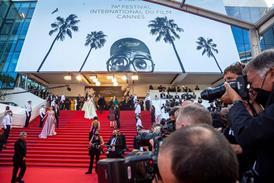
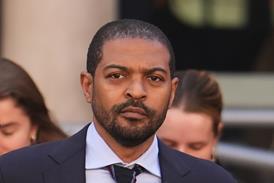
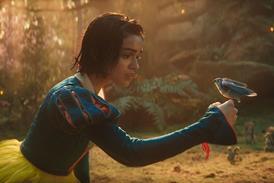
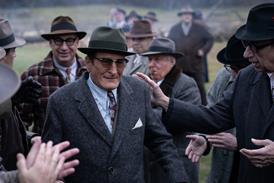



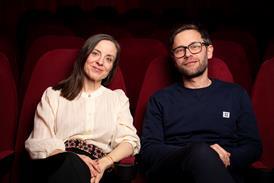
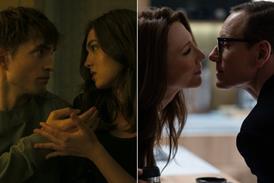









No comments yet